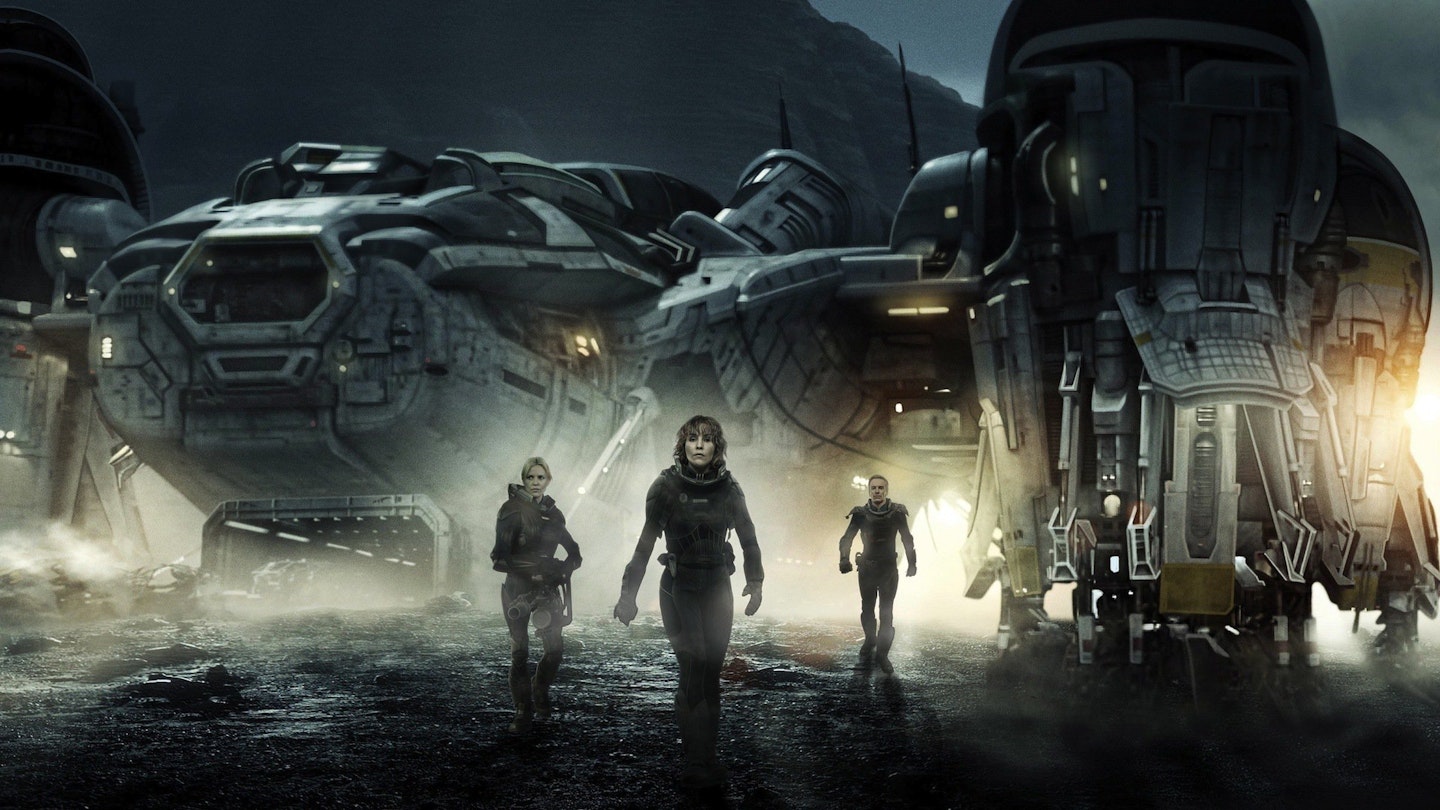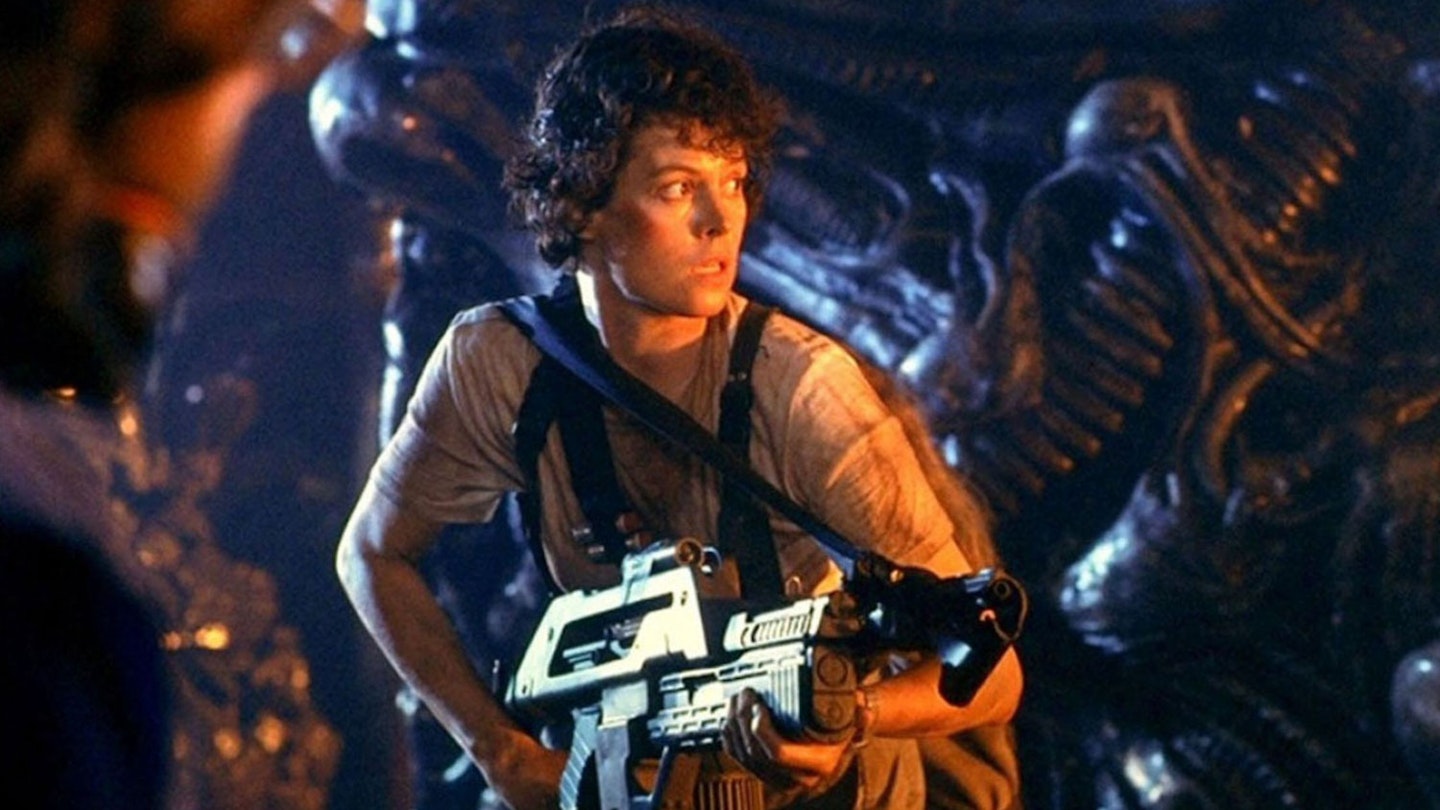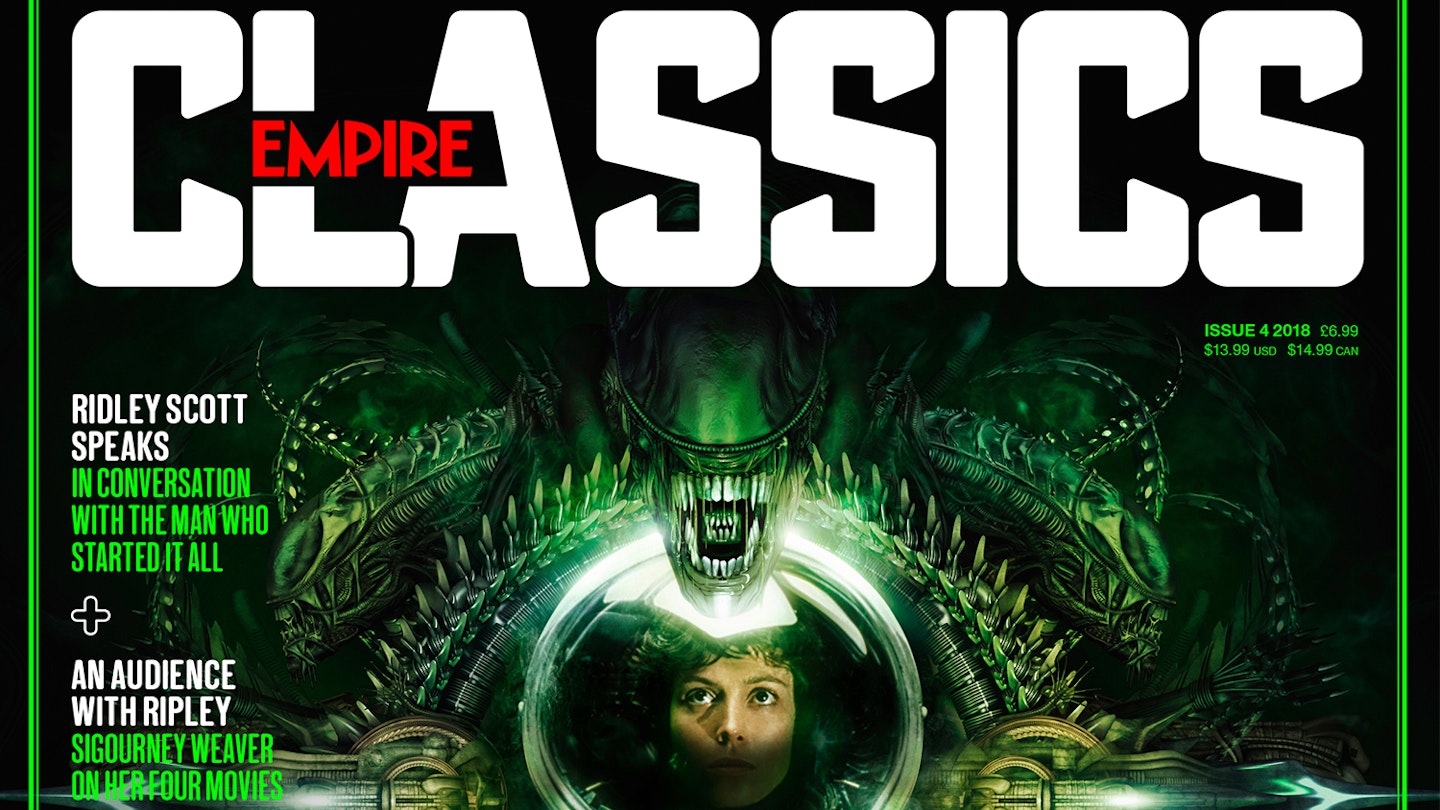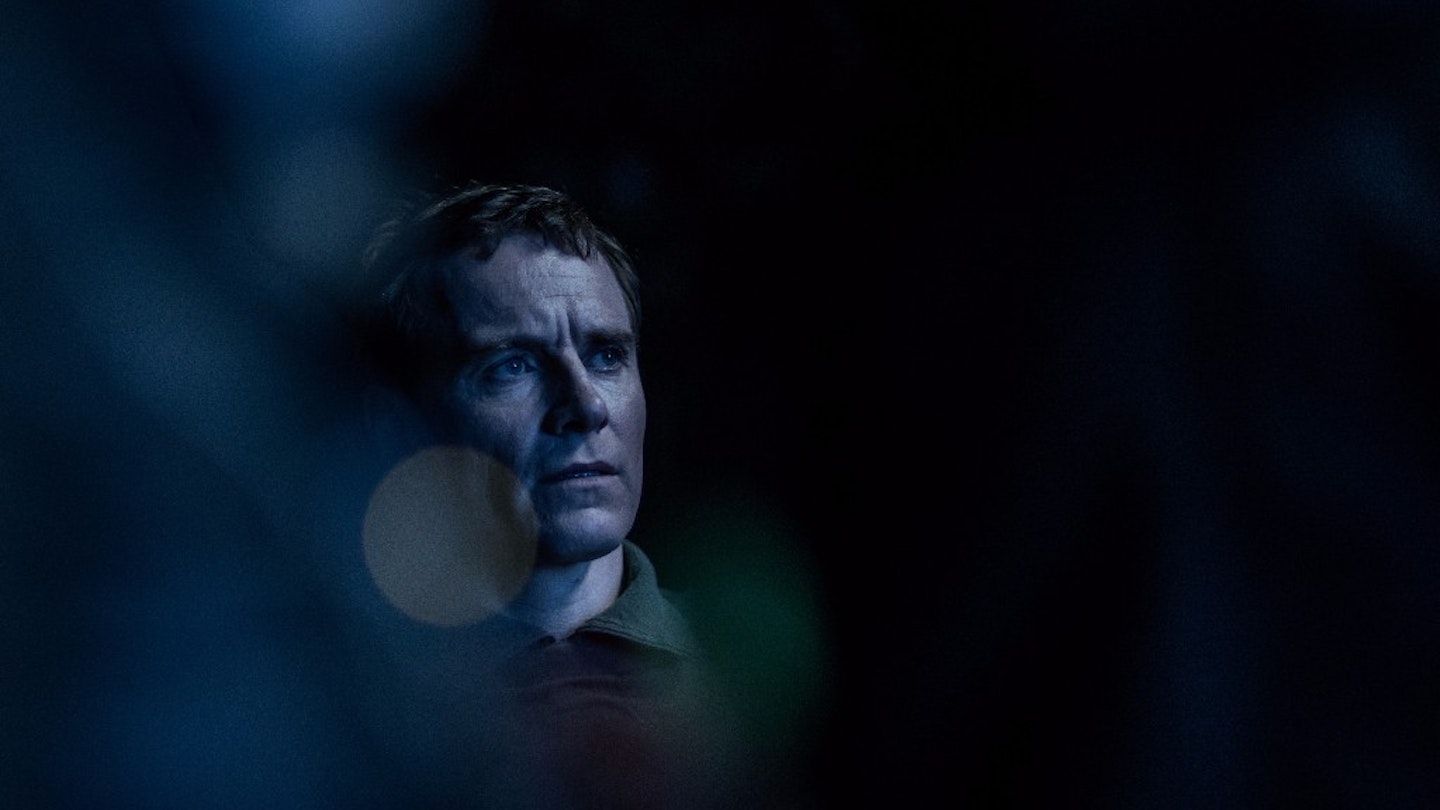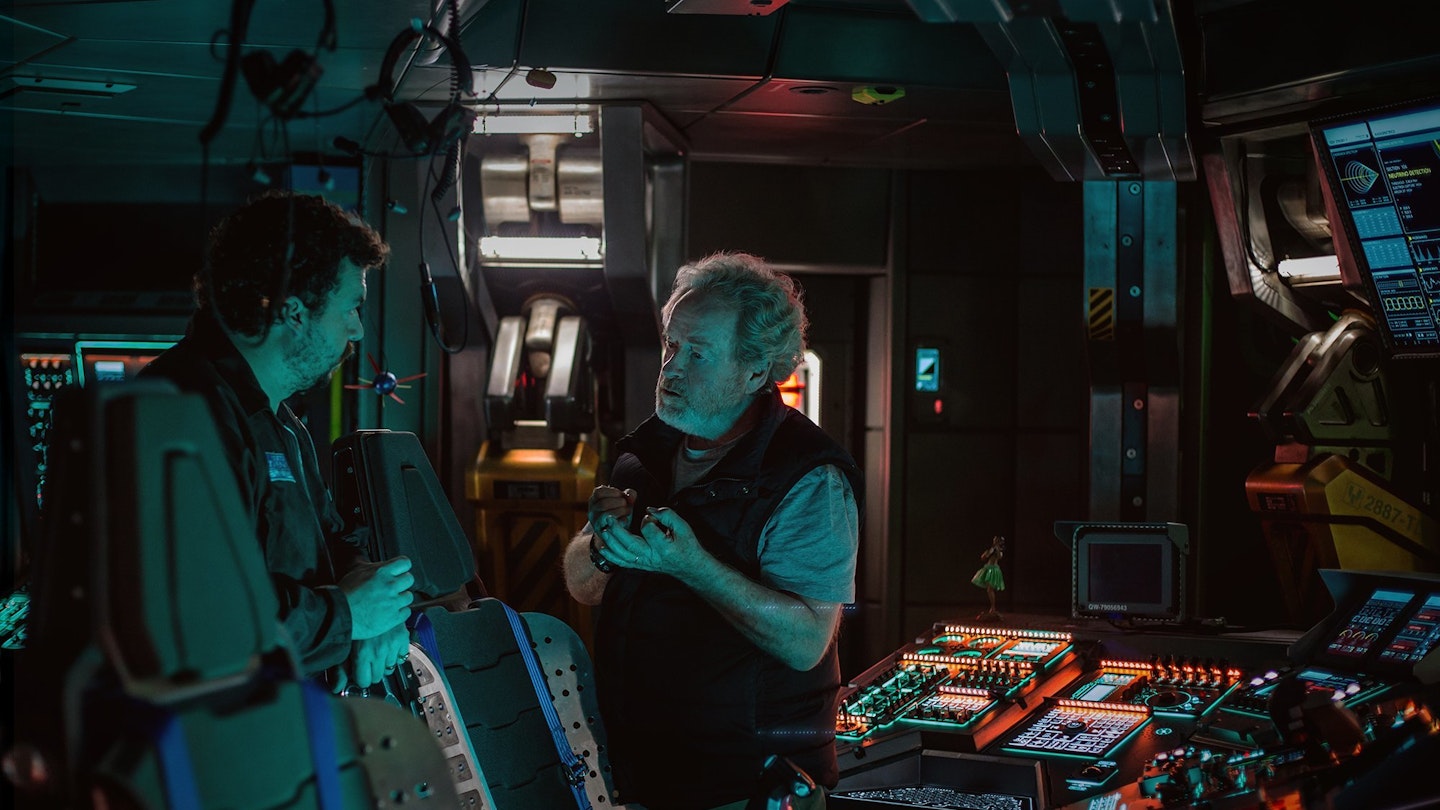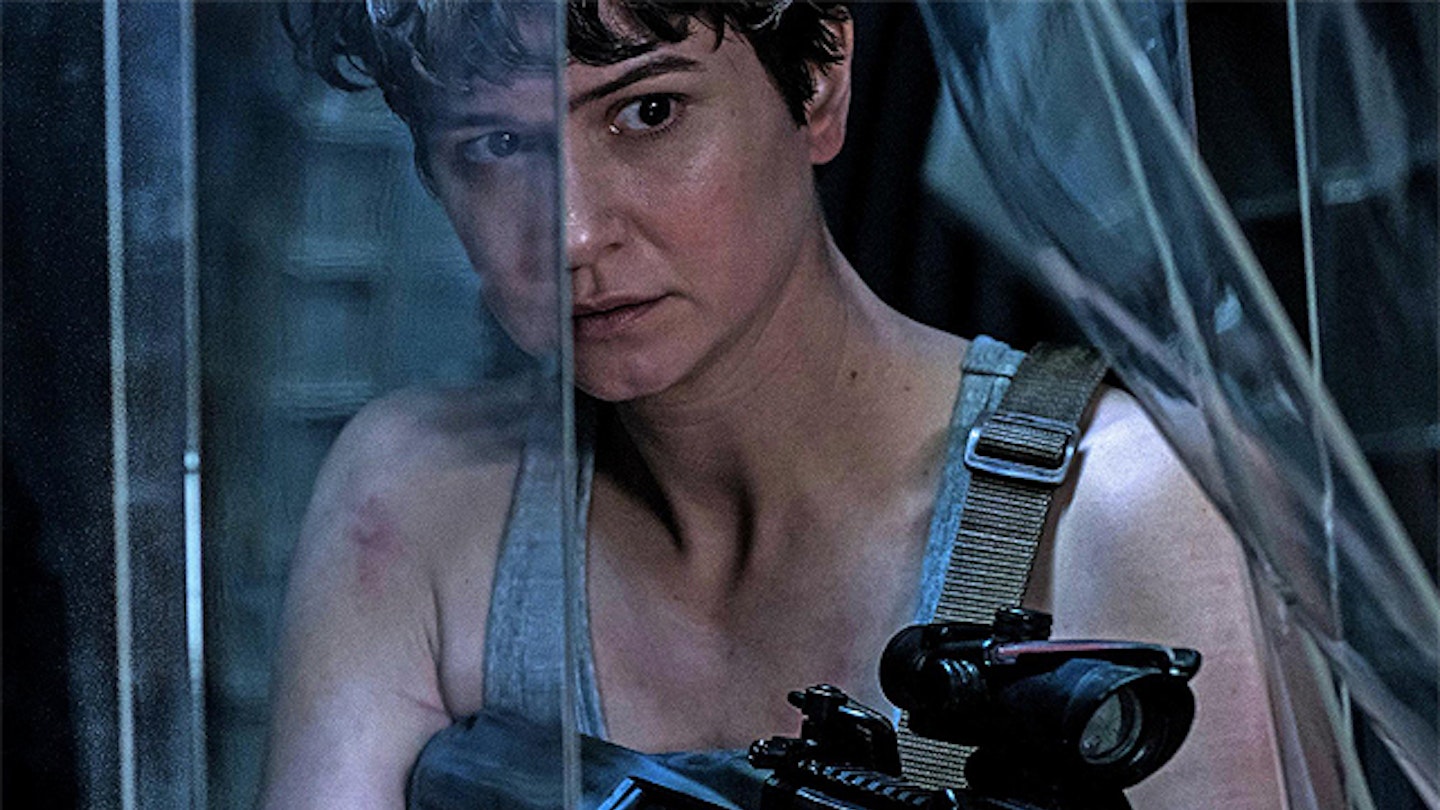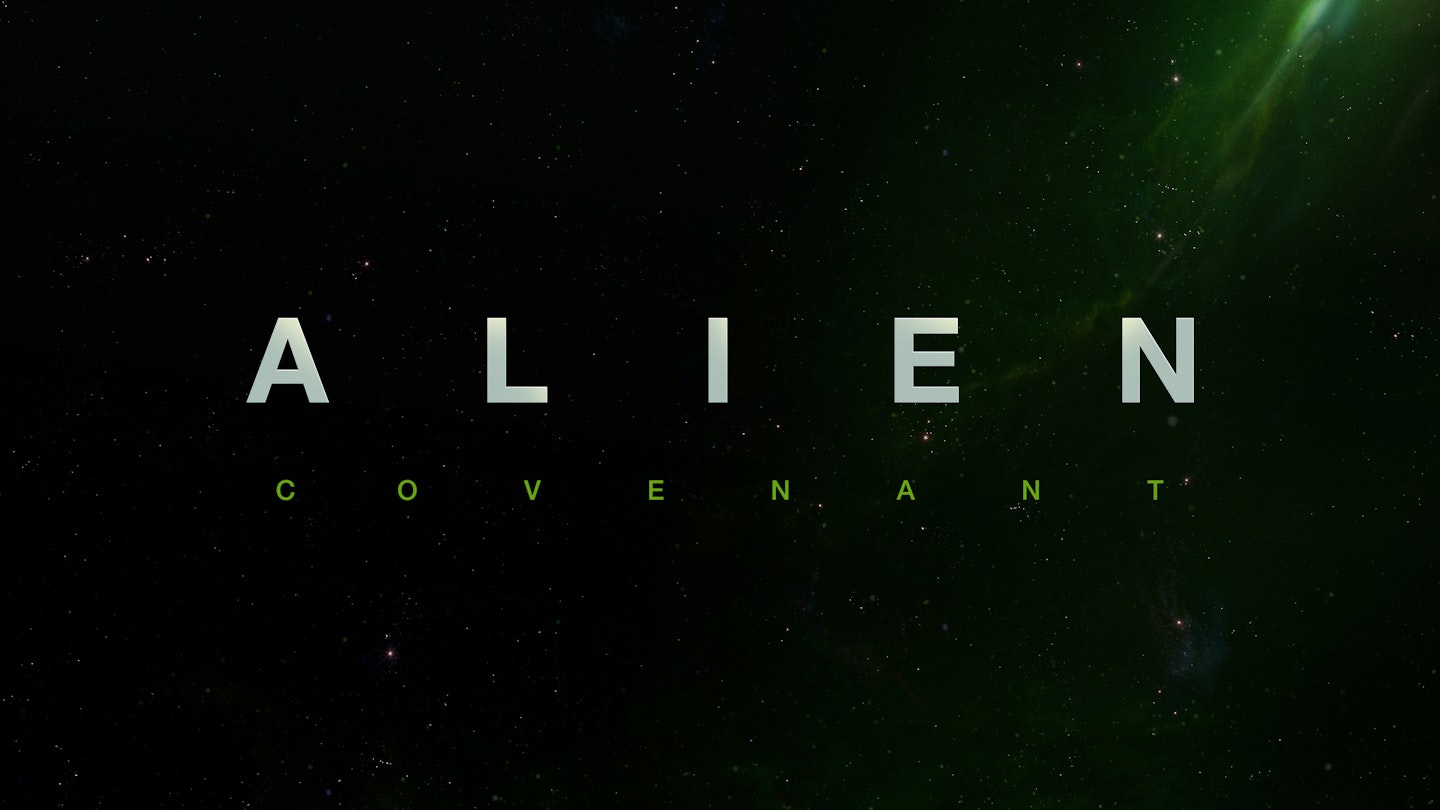Okay, first things first. Is it or is it not an Alien prequel? Yes, it is contained within the same universe and occurs prior (2093) to Scott’s transcendent B-movie and subsequent chest-aches. Yet it tells another story. You could deem it a reboot. The backstory of the Space Jockey — sorry, Engineer — H.R. Giger’s resplendent first victim discovered in Alien’s tomb-like Derelict with a notable hole in his plentiful ribs. There is more to him than meets the eye.
Scott must smirk at the irony of this being 20th Century Fox’s big summer hope. So many years ago, as they pinched at Alien’s purse-strings, the studio demanded he cut that ossified stranger from the budget. After all, he bore no great plot function: why not just put a big hole in the floor? Scott fought nail and tooth to keep him — the creature suggesting so much, this evocative layer of mysticism — and now Fox are hoping to launch an entire franchise about him. In short, beneath the elephantine faceplate is a master bio-engineer (famous for toothy xenomorphs and humankind) and we’ve come to pay our respects. Sounds a bit like Blade Runner when you put it that way.
Scott’s eagerly awaited return to science fiction does indeed boast many of the arch-stylist's robust qualities: the ethereal look, the visceral ickiness, an attempt to underpin the fantasy with a serviceable science. It is still Alien’s universe, but it is our universe too.
No director immerses you in an environment quite like Scott, and with money (and tools) he could never have dreamed of with Alien, he has let his imagination take flight. Gratifyingly, the film is an extension and diversification of Giger’s biomechanical otherness. There is less dank occlusion, that interminable, terrifying mist. You might be surprised to learn we are not on storm-beat LV-426 at all, but the pivotal temple/mound/lab (with its hints of Dan O’Bannon’s abandoned ‘pyramid concept’) carries forth the space-Goth template of Alien’s texture — there’s even an original Giger on the wall.
Yet Prometheus feels totally different. It is grittier, dirtier, earthier. It is airy and open; even the interiors have an epic scale. There are no constricting corners, few corridors down which we will plunge. Setting out its size-matters agenda, we commence by floating over staggering silver-grey vistas (of which planet is open to speculation) — genuine exteriors. Famously, none of the Alien movies (discounting one beach scene in the Alien3 workprint) ventured from a soundstage.
A disciple of Kubrick, Scott had an itch to try his hand at 2001’s grand scope even before he made Alien. And now, joining forces with Lost-alumus Damon Lindelof and digging out his dog-eared copy of Erich von Däniken's Chariots Of The Gods, he has mostly deviated from the anticipated monster-movie template for a mythical man-meets-god-it-doesn’t-go-well exploration movie. You can’t fault his ambition. Matters of belief are weighed up, big questions raised, then people start to turn green, the medi-lab has a rush on, and the ghost of Christmas past (make that future) comes back to flip the genre into horror.
Only it stalls. Put it this way, if you were eagerly awaiting a reinvigoration of the Alien franchise, some 3D chestbursting, facehuggers popping out of succulent eggs, some fresh psychosexual strand of xenomorphology ready to haunt our lives — a chance for the audience to be one step ahead of the doomed crew — you’re in for a colossal let-down. Leastways, it turns out Scott wasn’t fibbing, or even hedging his bets — this most definitely isn’t an Alien movie in that sense at all.
There is no accumulation of dread, none of Alien’s haunted silences and primordial drones that slid beneath your bones. The film is too busy, too talky, too noisy by half. Awe, wonderment and terror need atmosphere to flourish. For all the CGI grandiosity, there is a flatness to the mood. Prometheus is strangely impatient, irritable, rushing its set-ups and squandering drama. Characters perish, but without any great wit or design, and in fits and starts. The film can’t fix on where it wants the action to occur, dragging the cast back and forth between the Apple-elegant fixtures of the good ship Prometheus and the grey-green bio-horror chambers of the ‘temple’. Motive is sorely lacking.
By now you will be aware that Noomi Rapace’s non-denominational scientist Elizabeth Shaw works as a spiritual ancestor to Ripley, except both actress and character fall prey to the deathly thinness. She’s English (via Stockholm), clings to the idea of God, and when the film lurches into panic mode is thrust unconvincingly into leading lady. Sigourney Weaver she is not. The rest of the 17-strong (no cat) Prometheus crew follow suit — interesting actors confined to blunt B-movie traits and rudimentary dialogue as if dredged up from O’Bannon’s original Roger Corman-bound Star Beast. You might be sick of comparisons, but the crew of the Nostromo were recognisably human. We knew them. Here they are plot devices waiting to die. And you care not a jot as they get mashed, tentacled, or infected with worm-eye.
Charlize Theron, as Weyland Industries queen-bee Meredith Vickers, is the bitch (Burke minus the smarm). Sean Harris looks likely to be our bilious below-decks mutineer (“I love money!”) but turns out to be a cowardly geologist (“I love rocks!”). Rafe Spall is a silly biologist. Idris Elba the spit-and-sawdust ship’s captain. Logan Marshall-Green the gung-ho love interest. Yadda, yadda, dead.
Thank God (or is that the Space Jockeys — sorry, Engineers?) for Michael Fassbender. His performance elevates the film: a multi-faceted reboot of the requisite android. David is a smart link in the thematic chain — a creation of our making as we are the progeny of the Space Jockeys. Sorry, Engineers. Are we therefore not gods? David’s motives are appropriately obscure, if not impenetrable, as he serves as Prometheus’ witty and worrying gentleman butler/scientist/double-agent retrofitting Jeeves, David Bowie, and Peter O’Toole’s waggish Lawrence of Arabia, a film the unhuman factotum obsessively watches while the crew sleeps. Scott used to wonder what Ash got up to on the Nostromo as Ripley and co. slumbered, and in a delightful early montage we catch the bored android wandering the ship like a listless child. The camera roves after him through the decks still bearing Ron Cobb’s Egyptian motifs and functional aesthetic, although this is a millionaire’s yacht compared to the Nostromo’s battered tug.
In its entirety, though, the film struggles to find a central strand which to hang on to. The horrific magnificence of both Alien and Aliens is their directness — they are primal thrillers, questions of life in the universe tend to go on the backburner when you’ve got a xenomorph chewing on your face. What’s worse, the endoskeleton is on view. Here are the unmistakable bones of its previous incarnation as a nailed-on Alien prequel — there are elements of the unfolding squelchiness that feel like feeble rewrites of Alien attributes: an egg-sized ampule, a vagina-mawed tentacle playing facehugger, a whole strand of creature nastiness that has our old xenomorphic favourite written all over it. Scott didn’t want the cliché, but you sure miss him.
And the stand-ins are no great shakes — somewhere in Switzerland Giger is snorting into his schnapps. Early on we glimpse beneath the exoskeleton — sorry, spacesuit — and the Space Jockey — sorry, Engineer — turns out to be a overly-pumped bald bloke with dead-eyes who has no dialogue and punches people across the room. So basically they’ve spent two years in cryo to discover that God is Jason Statham.
By the shifting sands of the last act, the film has descended into B-movie mayhem, as Alien became so much more. Yes, there is much to wonder at, a laudable ambition to open up unforeseen corners of a faltering franchise, but the chestburster might just have been thrown out with the bath water. There is no getting away from it, you’ll leave with an empty feeling inside.
